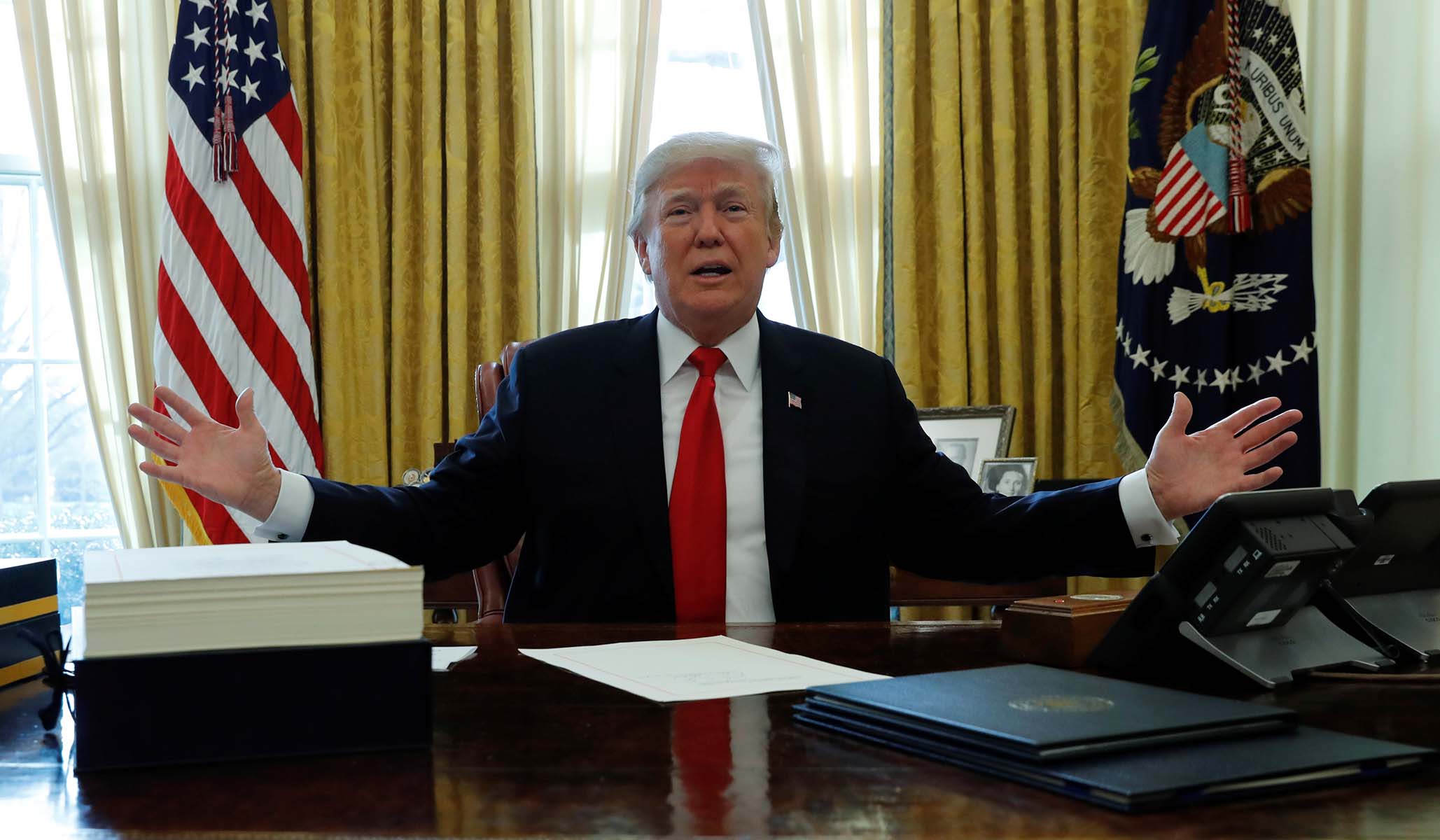


NRPLUS MEMBER ARTICLE S pecial Counsel John Durham’s newly released report on the conclusions of his probe of the FBI’s conduct in its investigation of Donald Trump’s alleged “collusion” with Russia paints a damning portrait of the bureau. The report savages the agency for applying a selective reading of the evidence before it to open the investigation in the first place — a lax standard reserved, apparently, for the 2016 Trump campaign alone. The report concludes by noting that, had agents applied the “standard analytical tools typically employed by the FBI in evaluating raw intelligence,” the agency would have concluded that the evidence linking Trump to Russian officials failed to warrant investigation.
The Durham probe’s findings have produced existential levels of cognitive dissonance among political observers for whom Trump’s indebtedness to Moscow was a foregone conclusion. The Washington Free Beacon has compiled some of the more glaring examples. Within 20 minutes of the report’s release, some of MSNBC’s contributors were prepared to dismiss the probe’s findings as a restatement of facts long known to observers who followed this story in its granular detail. “You can’t say there wasn’t collusion found here,” said one of the network’s legal analysts, citing the successful indictments of Russia-linked actors sought by Robert Mueller’s special-counsel investigation. “Durham is playing dumb,” he added. “He’s too smart for this and therefore I have to say there was an agenda here.” Just how deep does the conspiracy go?
No one should condemn political observers who reserved judgment while the claims against the Trump campaign’s conduct were under investigation, but that is not what the loudest voices in our politics did. Both the pro- and anti-collusion camps judged the matter before the facts were known. For the former, both the Trump campaign’s willingness to indulge Moscow’s representatives and the measure of physical pain Donald Trump appears to experience whenever he is prompted to criticize the Russian president suggested, at least circumstantially, that there was a quid pro quo here. But even in the earliest days of the Trump presidency, his administration’s policies should have disabused Trump’s critics of the notion that his White House was intent on handing the keys of U.S. foreign policy over to the Kremlin.
As I wrote in mid March 2017, days ahead of the inauguration of the first of many congressional investigations into Russian interference in the 2016 election, the only evidence in support of the notion that Trump was committed to paying his Russian handlers back for their assistance in getting him elected was that his White House had attempted yet another “reset” of relations with Moscow, making him the third straight president to enter office with delusions of getting the Kremlin to change its malign ways. (Joe Biden would become the fourth.) That effort aside, the Trump administration had behaved toward the Kremlin in ways no one could fairly describe as conciliatory.
In the opening weeks of the administration, U.S. Ambassador to the U.N. Nikki Haley castigated Moscow’s representatives for occupying Crimea and promised that Obama-era sanctions stemming from the 2014 invasion of Ukraine would remain in place. Vice President Mike Pence insisted that tailored sanctions relief would be contingent on Russia’s engaging in more effective efforts to disrupt ISIS’s operations in Syria. The Trump Justice Department indicted two Russian spies over the alleged hacking of Yahoo email accounts in 2014, an operation that implicated Russia’s domestic intelligence services.
Within the administration’s first year, the Trump White House had established for itself a record of toughness on Russia that rivaled those of all his post-Soviet predecessors. Predictions to the contrary notwithstanding, the administration not only maintained existing sanctions against Russia but strengthened them, and it imposed similarly tough economic restrictions on Russian allies such as Iran. Trump ordered airstrikes on the regime run by Putin’s satrap in Damascus. The White House closed Russian consulates and annexes in the United States and applied Magnitsky Act sanctions to Kremlin surrogates such as Chechen warlord Ramzan Kadyrov, taking steps that the Obama White House had refused to take (and that Kremlin cutout Natalia Veselnitskaya had lobbied the Trump family against taking in 2016). And the Trump White House at long last provided Kyiv with lethal armaments, augmenting its efforts to deny Russian forces and the Kremlin’s proxies the further conquest of Ukrainian territory.
Yes, the conventional Republicans who executed these policies were figures Trump himself later turned against. Yes, Trump himself maintained a bizarre double standard in his stances toward Russia’s leadership, to whom he still defers with puzzling regularity. But the former president’s record on Russia before Mueller’s investigation never substantiated the notion that he was somehow in hock to the Kremlin. Whatever Moscow was supposed to get out of the Trump administration, it couldn’t have been thrilled with the return on investment.
The circumstantial evidence of Trump’s preference for Russian narratives — evidence Trump himself willingly provided at every available opportunity — was enough to give neutral observers pause in advance of the investigations into his conduct. But so, too, was the counterevidence. Now, with all the investigations done and the case finally closed, what is required of the collusion narrative’s boosters isn’t laudable prudence and circumspection. It’s a willingness to suspend disbelief.
